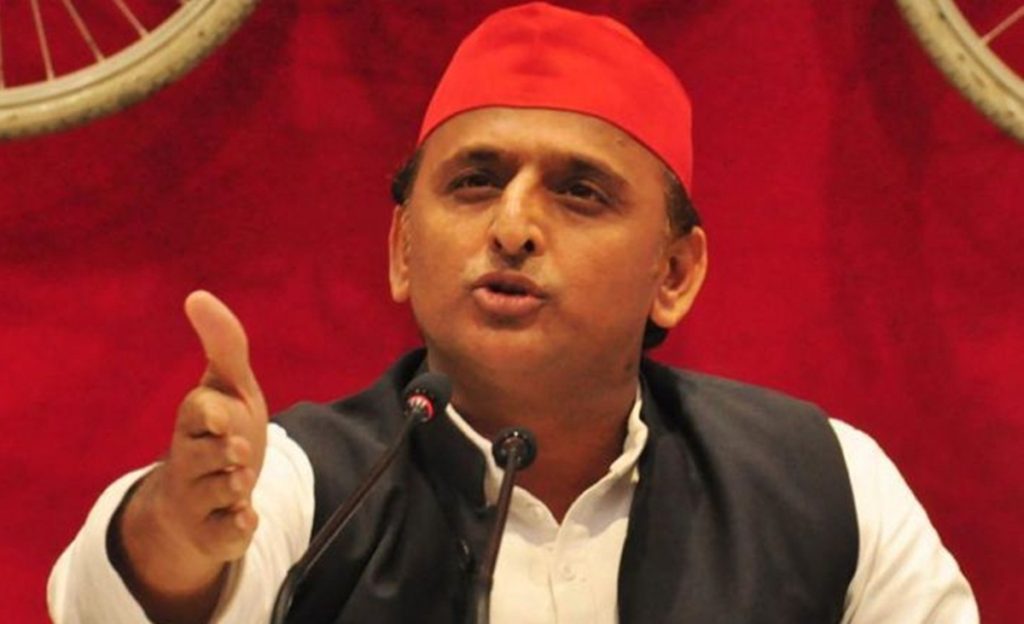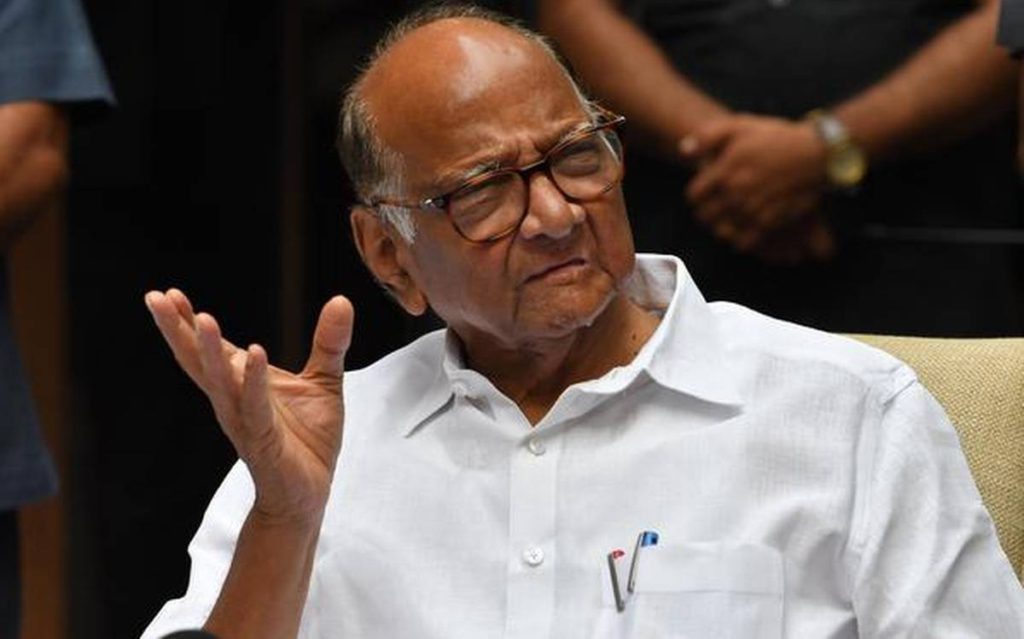@the_news_21
New Delhi: By March 15, 2022, the profile of governments to rule Uttar Pradesh, Punjab, Uttarakhand, Manipur and Goa will be known.
Ominous or auspicious for the major players on the field, the totality of the outcome is going to be the Ídes of March’ moment in national politics, portending to the fortune or bad luck awaiting the ruling and opposition parties in 2024 parliament elections.
Political commentators often tend to base their analyses on the prime question of how the Bharatiya Janata Party (BJP) is going to fare in the polls. This hinges around the fact that Uttar Pradesh (UP) is the most important of these five states, by its sheer size and history of setting the national mood, offering broad indications of the direction the country is heading in.
The reality, however, cannot be glossed over that these elections will seal the fate of all national parties as well. Their ability and credibility are at stake.

There is no doubt that retaining UP is crucial for the BJP, and much more so for Prime Minister Narendra Modi than the incumbent Chief Minister Yogi Adityanath. Failure of the formidable Modi-Yogi combine to secure a back-to-back mandate in UP will deal a grim blow to the confidence of the BJP. It will find it hard to recover from the psychological crisis of that defeat.
On the flip side, the defeat of the BJP in UP will be a morale booster for all opposition parties across the country, whether they have any direct reckoning in that state or not. The mortification of the saffron party will help them recover from their ‘there is no alternative’ complex.
So, a comfortable victory in UP, and a credible showing in four other states, is vitally important for the BJP to brace up for the grand battle in 2024.
For Congress, this round of elections is a matter of its very survival. The elections have come at a time when the party is faced with an existential crisis. A debate is also raging whether Congress continues to have the stature and acumen to remain the nucleus of the anti-BJP opposition axis at the national level.

Going by signals emanating from ground zero, the Congress is unlikely to make major inroads in UP. But the party has betted it high on the state by fielding Priyanka Gandhi as its supreme commander. She has plunged into the battle in right earnest. Priyanka has made her foray into the state well before the polling schedule was announced, making all efforts to mobilize the moribund organisation. A decent performance, if not a victory, is critical for the survival of the grand old party. If its plans go awry, that will be the last straw on the back of the dynasty.
Also Read: Silent Valley movement like stir building up against Kerala’s high-speed rail project
A rout in UP and loss in Punjab, Uttarakhand and Goa, will embolden the dissidents to come out with all guns blazing against the family-controlled Congress leadership. For better or worse, such an event would prove to be a defining moment in national politics.

For Samajwadi Party leader Akhilesh Yadav, a victory is inevitable for his very political survival. A second consecutive defeat will render his credibility in tatters. If he romps home trouncing the huge challenge mounted by the BJP, Akhilesh’s stake at the national level also will go up considerably.
The performance of the Bahujan Samaj Party (BSP) is also decisive in the post-poll scenario. Of late, its supreme leader Mayawati has tended to be less garrulous. But popular and shrewd as she is, she can not be ruled out as an important player in UP.
For Aam Aadmi Party (AAP), the current round of elections is more of an opportunity to test waters outside Delhi. Barring Punjab, the party is unlikely to make any serious effort other than luring and relying on a few disgruntled elements from other parties.
Poor performance of the Congress will have its chaotic fallout on the loose and amorphous opposition alliance. That will lead to further assertion by regional players like West Bengal Chief Minister Mamata Banerjee, seeking a greater role beyond her home turf.

The post-poll scenario may also see seasoned veterans like Sharad Pawar taking a central role in bringing together regional forces to stitch up a broad national coalition. This could lead to a situation similar to that the country had when the United Front or National Front governments were led by regional parties. Delinked from ideology, a conglomerate of all anti-BJP parties could come together on a common platform if the 2024 Lok Sabha polls throw up a fractured verdict.



Great write-up! The points discussed are highly relevant. For those wanting to explore more, this link is helpful: FIND OUT MORE. What are your thoughts?
where to buy clomid without prescription where can i get clomiphene pill cost cheap clomid without insurance can i order generic clomiphene without insurance buying generic clomid where can i get generic clomid no prescription where can i get clomiphene no prescription
I am in truth happy to glitter at this blog posts which consists of tons of worthwhile facts, thanks representing providing such data.
More posts like this would make the blogosphere more useful.
azithromycin online order – floxin 200mg us buy flagyl 400mg for sale
order rybelsus 14 mg sale – buy cyproheptadine pills how to buy periactin
motilium 10mg price – buy generic flexeril 15mg buy cyclobenzaprine 15mg online cheap
buy generic amoxil – buy combivent no prescription buy combivent 100 mcg without prescription
zithromax 500mg without prescription – nebivolol cost nebivolol online buy
order generic augmentin – atbioinfo buy ampicillin pills for sale
nexium 40mg cheap – https://anexamate.com/ cheap nexium 40mg
purchase warfarin – anticoagulant losartan 50mg pills
cost mobic 7.5mg – https://moboxsin.com/ purchase meloxicam for sale
buy deltasone 5mg generic – https://apreplson.com/ prednisone 5mg uk
otc ed pills that work – top rated ed pills online ed pills
buy amoxil online cheap – purchase amoxil generic amoxicillin tablet
buy fluconazole online cheap – https://gpdifluca.com/ buy fluconazole without a prescription
escitalopram online buy – lexapro 10mg ca escitalopram for sale online
cenforce 50mg pill – site buy cenforce 100mg
canadian cialis 5mg – https://ciltadgn.com/ tadalafil tablets
tadalafil lowest price – cialis overnight shipping cialis super active vs regular cialis
purchase ranitidine without prescription – online purchase ranitidine pills
how to buy viagra at boots – click order viagra no prescription
Thanks for putting this up. It’s okay done. https://gnolvade.com/
Greetings! Extremely gainful par‘nesis within this article! It’s the petty changes which will turn the largest changes. Thanks a a quantity in the direction of sharing! https://buyfastonl.com/
I am in truth enchant‚e ‘ to coup d’oeil at this blog posts which consists of tons of useful facts, thanks towards providing such data. https://ursxdol.com/sildenafil-50-mg-in/
Thanks for putting this up. It’s well done. https://prohnrg.com/product/lisinopril-5-mg/
Facts blog you possess here.. It’s hard to espy high quality belles-lettres like yours these days. I justifiably recognize individuals like you! Go through vigilance!! aranitidine
More articles like this would pretence of the blogosphere richer. https://ondactone.com/spironolactone/
More posts like this would make the blogosphere more useful.
https://doxycyclinege.com/pro/ondansetron/
This is a keynote which is near to my fundamentals… Myriad thanks! Quite where can I find the connection details in the course of questions? https://www.forum-joyingauto.com/member.php?action=profile&uid=48095
buy forxiga 10 mg online cheap – https://janozin.com/ order dapagliflozin 10 mg sale
order xenical for sale – https://asacostat.com/ orlistat medication
This is a question which is forthcoming to my heart… Diverse thanks! Exactly where can I notice the connection details due to the fact that questions? https://experthax.com/forum/member.php?action=profile&uid=124822
You can protect yourself and your dearest by being heedful when buying prescription online. Some druggist’s websites control legally and offer convenience, solitariness, cost savings and safeguards to purchasing medicines. buy in TerbinaPharmacy https://terbinafines.com/product/requip.html requip
The thoroughness in this draft is noteworthy. web
Thanks for sharing. It’s first quality.
Khám phá thế giới giải trí trực tuyến đỉnh cao tại MM88, nơi mang đến những trải nghiệm cá cược thể thao và casino sống động.
搭载智能站群程序,自动化搭建与管理,为SEO项目提供核心驱动力。站群程序
Với giao diện mượt mà và ưu đãi hấp dẫn, MM88 là lựa chọn lý tưởng cho các tín đồ giải trí trực tuyến.
Tham gia cộng đồng game thủ tại Go88 để trải nghiệm các trò chơi bài, poker phổ biến nhất hiện nay.
betmgm South Dakota betmgm-play betmgm Illinois